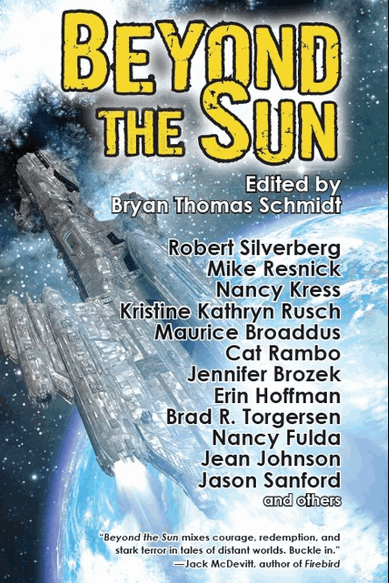 I get this question all the time: “How Do I Know What’s Reasonable?” about independent editors and their fees. You’d think people would consider me biased, but in truth, I’m not because although I have absolutely confidence in the quality of our work at Finish The Story and my own independent work, I understand the issue from a writer’s perspective and I want clients who hire me to be comfortable and feel they belong there, not constantly wondering if they made a mistake.
I get this question all the time: “How Do I Know What’s Reasonable?” about independent editors and their fees. You’d think people would consider me biased, but in truth, I’m not because although I have absolutely confidence in the quality of our work at Finish The Story and my own independent work, I understand the issue from a writer’s perspective and I want clients who hire me to be comfortable and feel they belong there, not constantly wondering if they made a mistake.
So here are some tips for choosing the right Independent Editor for you.
1) Do Your Research — Don’t take our word for it off our website or business cards and brochures, ask around. Check with people on our client list, others in the industry who might know our reputation, etc. Ask about what we do, how we do it, and the quality. Ask any question you can think of that. That’s just proper due diligence, after all, editing is an investment and your art is in the balance.
2) Don’t Be Afraid To Ask Questions — Feel free to ask us questions directly, too, about all of the same things and more. An editor who won’t answer questions is not one who values the communication necessary to work well with authors. It’s okay to be inquisitive. Better that than miscommunication that damages the relationship. Ask about past experience in your genre, for example. Ask about time frame and how they handle it when they exceed the quote: do they check with you before proceeding or just plow on and expect you to foot the bill? (I always do the former.) Will they recommend your work to others in the industry if they feel it’s worthy? etc.
3) Ask For A Free Sample Edit — Most of us will edit 5-10 pages free as an example of our work. Take advantage of this. You can get a sense of what we do, how we do it, and if it will be helpful to you in your process. We get a sense of whether you’re at a level that we can be of benefit. If I don’t think it’s worth the money for you to hire me right now, I’ll tell you honestly. Because I’d rather work with people for whom I can be of benefit, not people who need to spend more time developing craft. Because most writers can’t afford to come back again and again, and I don’t want to ghost write for you.
4) Compare Rates With Industry Standards — What are fair rates? Check the Editorial Freelancer’s Association’s posted Rate Standards here. You’ll get a really good sense from this if the editor you are dealing with is in line with the going rate. You’ll also get a sense of whether your expectations are realistic. In my experience, the latter is most often more of an issue than the former, because writers just don’t realize how much work goes into editing or what that’s worth, and they often undervalue it. If that sounds biased coming from an editor, so be it. But to do well, I have to make multiple passes of your document. I have to work with extreme focus, without distractions, and that means concentrating, and that can be draining. As a result, I set limits on how many hours I edit at a time and even per day. And I also only work on one project at a time, to avoid mixing them up in my mind. Not everyone works that way, but that’s how I get best results. And so I charge what I think is reasonable compensation. I’m still working on the low end of industry standards. But that’s okay, I’m new and still proving myself. But make no mistake, I earn your trust and I don’t have a single unsatisfied client yet. So check out my rates. I want you to know that I’m worth it.
5) Ask Their Prior Clients — Yes, I said this before but it needs to be emphasized again, because it’s perfectly fine to ask for references or track them down on your own. In the writing industry, people often know each other, and most are always happy to answer questions about someone they enjoyed working with or someone they didn’t. Don’t look to create drama. Tweet or Facebook or Email and tell them: “I’m thinking about hiring so-and-so as an editor for my project, and I was curious about your experience working with them.” If what they have to say needs to be kept private, they’ll let you know and find a way to communicate appropriately. If what they have to say is good, chances are they’ll be happy to say it loudly and often. But it never hurts to ask. I’ve never had someone refuse to be a reference in such cases.
So there you have it, five helpful tips for choosing the right independent editor. I hope these give some of you a better sense of what to look at and good questions to ask. Happy editing and continued success!
For what it’s worth…
 Bryan Thomas Schmidt’s debut novel The Worker Prince received Honorable Mention on Barnes & Noble Book Club’s Year’s Best Science Fiction Releases for 2011. His other books include The Returning, and the children’s books 102 More Hilarious Dinosaur Jokes For Kids and Abraham Lincoln: Dinosaur Hunter- Land Of Legends. His short stories have appeared in magazines, anthologies and online. He edited the anthology Space Battles: Full Throttle Space Tales #6 (Flying Pen Press, 2012), Beyond The Sun (Fairwood, July 2013), Raygun Chronicles: Space Opera For a New Age (Every Day Publishing, November 2013) and Shattered Shields with co-editor Jennifer Brozek (Baen, 2014). He also edits Blue Shift Magazine and hosts #sffwrtcht (Science Fiction & Fantasy Writer’s Chat) Wednesdays at 9 pm ET on Twitter and can be found via Twitter as @BryanThomasS, or his website at www.bryanthomasschmidt.net.
Bryan Thomas Schmidt’s debut novel The Worker Prince received Honorable Mention on Barnes & Noble Book Club’s Year’s Best Science Fiction Releases for 2011. His other books include The Returning, and the children’s books 102 More Hilarious Dinosaur Jokes For Kids and Abraham Lincoln: Dinosaur Hunter- Land Of Legends. His short stories have appeared in magazines, anthologies and online. He edited the anthology Space Battles: Full Throttle Space Tales #6 (Flying Pen Press, 2012), Beyond The Sun (Fairwood, July 2013), Raygun Chronicles: Space Opera For a New Age (Every Day Publishing, November 2013) and Shattered Shields with co-editor Jennifer Brozek (Baen, 2014). He also edits Blue Shift Magazine and hosts #sffwrtcht (Science Fiction & Fantasy Writer’s Chat) Wednesdays at 9 pm ET on Twitter and can be found via Twitter as @BryanThomasS, or his website at www.bryanthomasschmidt.net.





